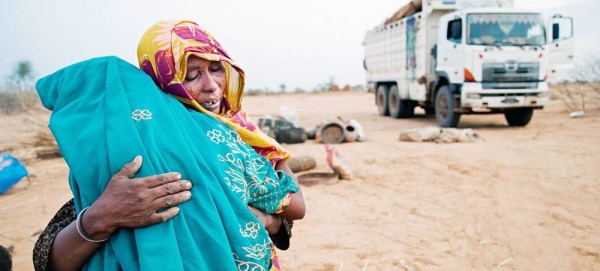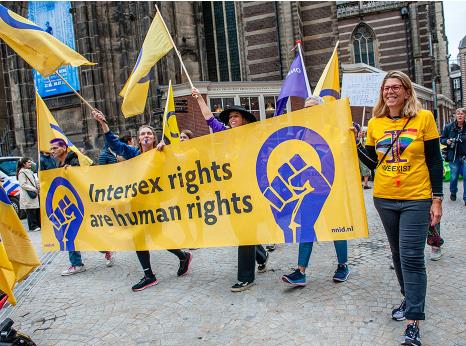
DUBAI: Speaking in the ramshackle hut he calls a home in the southwest of Beirut, Khodar Khalaf, 58, described his life in four words: “I do not exist.”
Khalaf was born in Lebanon to poor parents who died at a young age. That meant his birth was not registered and he was raised in an orphanage. He should be a Lebanese citizen but he is instead stateless. “I cannot travel, I am not qualified for healthcare and I cannot work. I have no identification papers,” he said.
Khalaf’s case is similar to those of at least 27,000 other people who have fallen through the cracks during a decades-long maelstrom of war, confusion and bureaucratic inertia.
In a country that is fast losing its capacity to look after even its documented citizens, being stateless in Lebanon has become an unbearable curse. With no recourse to state funds or aid, Khalaf is forced to scrounge around to survive.
In addition to the poverty, discrimination and lack of access to the legal avenues or powerful people who could help, the country’s stateless are forced to do whatever they can to scrape by amid an unprecedented economic meltdown that threatens to create a permanent underclass.
According to Siren Associates, a non-governmental organization that advises public-sector clients on governance-reform initiatives, the number of stateless people in the northern city of Tripoli alone stands at around 2,200 — a figure it expects to double over the next 15 years.
In a report titled “The Plight of the Rightless: Mapping and Understanding Statelessness in Tripoli,” originally published in 2019, Siren Associates said some 67 percent of stateless people in the city have Lebanese mothers and 70 percent have Lebanese fathers, yet somehow they still manage to slip through the cracks of a system that ought to protect them.
The report found that in many cases stateless individuals lack basic documentation, such as a birth certificate, that is needed to prove their status, or the financial means or connections to acquire it.
Even in cases where a stateless person marries a documented citizen, their status and that of their children is not always resolved. Under Lebanese law, if a father is stateless his children inherit his legal status, even if their mother is a citizen.
“All my life, I was made to feel less than because my father is Palestinian,” 38-year-old Ahmad, whose mother is Lebanese, told Arab News. “There are so many opportunities I am not afforded, so many job sectors I am not allowed to enter; I cannot even be a taxi driver. I cannot own my own house. I have a four-year-old daughter and she inherited my curse.”
Palestinians in Lebanon have long been deprived of state protections. To prevent them from falling into destitution, the UN Relief and Works Agency offers basic services.
But Ahmad says the UN support is not enough to get by on, especially since the economic collapse in Lebanon began in 2019. Many Palestinians were already confined to camps, denied opportunities to travel and barred from several forms of employment. Now they face even harsher conditions.
One partial solution to the problem would be to change the law so that Lebanese women are allowed to pass on their nationality to their children and spouse.
Such a move has been staunchly opposed by successive governments, however, who view the granting of citizenship as a valuable political tool.
The country’s leaders are often given quotas for dispensing citizenship as a kind of political favor. Under Lebanon’s rigidly sectarian system, this is always done along confessional lines and almost always rewards powerful patrons such as businessmen, not the dispossessed.
In 2018, President Michel Aoun granted Lebanese citizenship to more than 300 people in a process that drew criticism for its lack of transparency and accusations of bribery.
Similar allegations were leveled against parliamentary speaker Nabih Berri and the prime minister at the time, Saad Hariri, when they too were given citizenship quotas to dispense. That year, a number of Syrian businessmen with connections to the regime of President Bashar Assad were granted Lebanese nationality.
“Anyone useful to the state, whether a businessman, investors or someone with a good reputation, and whose naturalization would be in Lebanon’s interest is welcome,” Gebran Bassil, leader of the Free Patriotic Movement and son-in-law of the president, said at the time.
However, Bassil remains opposed to changing the law to allow Lebanese mothers to pass on their nationality to their children.
Tentative moves to change the system have met with strong resistance. Toward the end of 2021, Mustafa Bayram, a Hezbollah MP and Lebanon’s minister of labor, announced plans to remove work restrictions on undocumented Palestinians and Lebanese.
The political class was outraged by the announcement, forcing Bayram to make a statement saying his “words were taken out of context” and that “what has been forbidden by law until now will remain the same.”
Lina Abou-Habib, a prominent feminist and director of the Asfari Institute for Civil Society and Citizenship at the American University of Beirut, has described the Lebanese government an “unapologetically patriarchal regime” as it effectively considers only men to be citizens.
“When you undermine a woman’s right to confer nationality, you undermine a generation’s rights to social services and political participation,” she told Arab News.
“Lebanon remains consistent in denying rights. This requires more than reform; it requires changing the whole system, the whole status quo.”
The country’s political dysfunction is compounded by its economic insolvency. Last week, the Lebanese pound was trading at 33,000 to the dollar, down from 1,500 just over a year ago.
Meanwhile, state subsidies on essential goods such as wheat, benzine and diesel have been chipped away, meaning a full tank of petrol now costs more than the average monthly salary, which inflation has reduced to just $21 in real terms.
Many Lebanese are now almost completely reliant on remittances sent from relatives living abroad. Dollars flowing in from the diaspora have long been a way to supplement an economy largely built on tourism. However, remittance dollars that were once a top up are now essential for many just to get by.
For the stateless with no access to money from overseas, the situation is growing increasingly desperate. Charitable organizations have been forced to step in where the government has been unable or unwilling to provide help.
“We offer hygiene kits, food distribution, education, legal advice and psychosocial support,” Hassan Bahani, programs manager at Insan Association, told Arab News. “Stateless children and their parents are often victimized and subjected to discrimination, and we offer counseling sessions to children and their parents.”
Charity can only be a short-term solution, however. Theodore Caponis, who led the research by Siren Associates on statelessness, said the denial of proper documentation is a human rights issue that must be urgently resolved.
“Left unaddressed, this issue will trap an ever-growing number of people in a human rights limbo and result in an even bigger challenge to the state,” he said.
“There is an immediate need to simplify and accelerate the process for settling the status of non-registered individuals born to a Lebanese father, and to simultaneously start a nationwide mapping of the stateless population.”
For Khalaf, living in his improvised shelter near the airport, the roar of jets taking off and landing is a constant reminder of his inability to travel. To survive he has resorted to the informal labor market, at times selling boxes of tissues on the roadside.
“The situation is unbearable,” he said. “Five years ago you were able to get by. NGOs had more opportunities to help people like me, neighbors had more means to help as well. But now it seems everyone can barely make ends meet.
“Sometimes I wish I was never born.”












